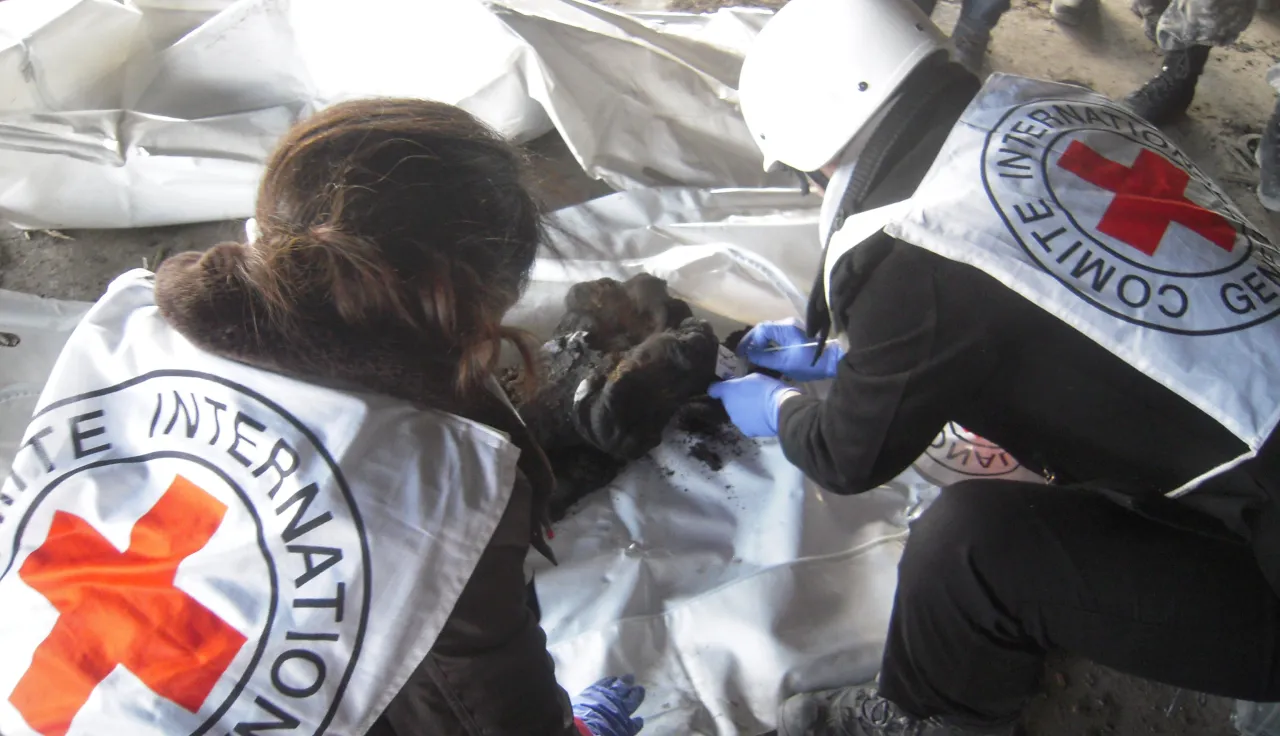ICRC staff take part in the evacuation of bodies from Donetsk airport. ICRC / O. Davydova.
Kiev (ICRC) – More than 40 experts from Ukraine and other countries have participated in the first ever seminar on forensic human identification in armed conflict and disasters to be held in Ukraine. Organized in Dnepropetrovsk by the International Committee of the Red Cross (ICRC), in cooperation with Ukraine's National Association of Forensic Experts, the event sought to promote best practices and launch scientific and academic activities related to the management and identification of mortal remains.
"Providing answers to people whose loved ones have gone missing is a complex task that requires coordinated and sustained efforts by all parties to the conflict, and therefore of different institutions and experts too," said ICRCForensic Coordinator Maria Dolores Morcillo Méndez. "It's crucial to strive for proper and dignified handling of mortal remains. To achieve this, what's needed is a joint vision and multidisciplinary approach. This will mean families get answers sooner. This is a humanitarian imperative."
The seminar brought together representatives from the local authorities, military, law enforcement agencies, the regional administration, local forensic experts and volunteers. Participants came from all over Ukraine. Experts from Canada and Argentina with more than 30 years' experience in this field were also present to share their experiences of recovering and identifying mortal remains in other conflicts and contexts. Following the three-day seminar, on 13 November sessions with members of Ukrainian groups involved in recovering human remains are being organized to discuss the technical aspects of this work in more detail.
"All the organizations involved in tracing missing persons and identifying human remains have different tasks, so information-sharing and coordination is key," said Valeriy Voychenko, the head of the Medico-Legal Bureau of the Dnipropetrovsk region and president of the National Association of Forensic Experts. "We are keen to continue working closely with the ICRC to improve forensic practices in Ukraine. A more comprehensive and integrated approach to human identification will definitely have a positive impact on our capacity to ensure better treatment of those who have died as a result of the conflict in Donbass, and to support their families."
By the end of the seminar the participants had agreed on a set of technical recommendations, including the need to involve forensic experts and operational agencies in the coordination mechanisms that have been set up, and to draw on different forensic disciplines in the identification process.
"This is just the beginning," said Iryna Fedorchuck, the head of the the Dnepropetrovsk region's Department of Cooperation with Law Enforcement Authorities and Defence, speaking on behalf of the governor of Dnepropetrovsk. "Many bodies are still unidentified, which means that there are hundreds upon hundreds of mothers, children, brothers and sisters who still have no information about the whereabouts of their loved ones."
Earlier this autumn, the ICRC hosted high-level discussions with key stakeholders and authorities involved in this critical issue in Kiev and in the city of Donetsk.
For further information, please contact:
Matthias Weinreich, ICRC Kiev, tel: +380 67 509 42 06

